Coconut oil is great for the whole family including your baby
Coconut oil is great for the whole family including your baby and with Coconoil organic coconut oil, you know you’re enjoying 100% natural goodness.
Coconoil organic virgin coconut oil is free from dangerous chemicals and harsh toxins, making it the perfect natural beauty product.
Each drop is packed full of natural goodness and it can be applied to the body as a moisturiser for your skin and a conditioner for your hair.
Coconoil will leave your, your family and pets glowing with health & vitality.
Coconut oil for your baby
Coconut oil is loaded with health benefits, including its anti-inflammatory, antioxidant and antibacterial properties. It is undoubtedly the most nourishing oil you can use on your little one’s skin. Most creams and lotions are designed to heal external tissues, while coconut-oil has deeper benefits that last longer. The molecular structure of the coconut oil allows for easy absorption on the skin.
Here are some ways of using coconut oil on baby:
1. Cradle Cap
Cradle cap or dry scalp is a condition that affects many newborns during early weeks after birth. The condition is characterized by a flaky scalp and seems like your little one has dandruff. The condition is prominent around the area of the baby’s head that touches the cot the most. Coconut oil can work wonders in this situation.
How To Use Coconut Oil For Cradle Cap?
Massage some coconut oil on your baby’s scalp, in particular on the area that is affected by cradle cap.
Let the oil stay on for 20 minutes and then use a baby comb or baby hair brush with very soft bristles to brush off the flakes.
Once you have brushed off the flakes, you can rinse your baby’s hair with lukewarm water.
2. Eczema
Eczema is a condition where the skin becomes very dry and, as a result, there could be itching too. Eczema is common in babies, as their skin is quite sensitive and can dry out quickly. The condition often goes away by itself as the baby grows, but it can be uncomfortable and can lead to infection in case the baby scratches the dry areas. Use coconut-oil, which is a good hydrating agent, can give some relief to your little one.
How To Use Coconut Oil For Eczema?
Massage your baby with coconut oil before or after bath time and once at bedtime to provide adequate moisture and hydration to the skin.
With regular coconut oil massage, your baby’s eczema will gradually decrease.
3. Nappy Rash
Nappy rash can affect babies due to nappies (obviously) or frequent urination. Almost all the babies suffer from nappy rash at some point in their lives, even after taking every possible precaution. As the name suggests, it is a rash that appears in the baby’s groin area. It is mostly a red rash that can spread if left untreated. Coconut oil acts as a barrier and prevents further irritation. It can nourish and treat the irritated skin. Unlike nappy rash creams, coconut oil does not ruin cloth nappies.
How To Use Coconut Oil For Nappy Rash?
Apply a layer of coconut oil on your baby’s nappy area after bath time each day and frequently after alternate nappy change.
Make sure to massage in the groin area and especially in the folds of the skin where the rash first appears.
The moisturizing property of coconut oil will help treat the nappy rash, and the antibacterial properties will prevent any further occurrence of the same.
4. Smooth Hair
When your baby is born, the hair may be soft and silky, but sometimes, dry and unmanageable hair can develop. It can be difficult to comb your baby’s hair, which can also further add to your baby’s dry hair woes. Use coconut oil to obtain smooth and healthy hair.
How To Use Coconut Oil For Your Baby’s Smooth Hair?
Wet your baby’s hair during bath time and apply a small amount of coconut oil evenly onto the hair.
Alternatively, you can also massage coconut oil for baby hair at night and wash it off in the morning.
5. Dry And Chapped Lips
Babies have sensitive skin that can be affected by the temperature. As your baby’s skin stands the risk of getting dried out faster than yours, there is also the chance of your baby’s lips turning dry and as a result, chapped. Chapped and dry lips can be an awfully throny problem for your little one, especially as they make it difficult for your baby to breastfeed. Also, your baby may constantly try to lick his lips to ease the pain, which can further dry his lips. Applying coconut-oil can help.
How To Use Coconut Oil For Your Baby’s Dry And Chapped Lips?
Take a clean and sterilized Q-tip and dip it in a little amount of coconut oil.
You can apply the oil on your baby’s lips as well as around the area of the lips.
Alternatively, you can also use your small finger to apply the oil evenly around your baby’s lips.
Make sure you do not apply any pressure as it can lead to pain and cause more discomfort.
6. Insect Bites
Your baby is more prone to insect bites than you, as he may not be able to fend off those bites. Also, babies have sensitive skin, and the area can soon turn red and result in swelling. And the added concern, the chance of it turning into an infection. Turn to coconut oil for rescue. It has natural antibacterial, anti-inflammatory properties. If you use it for treating your baby’s insect bites, it will reduce the risk of an infection and will also help in bringing down the swelling.
How To Use Coconut Oil For Your Baby’s Insect Bite Area?
Take some coconut oil in your hands and rub it between your palms to warm it up.
Now apply it gently on your baby’s skin where the insect bite is visible. Make sure you do not rub down hard as it may cause more pain and discomfort to your baby.
Apply the coconut oil and leave it on till your baby’s next bath time. You will soon notice an improvement in swelling and redness.
7. Homemade Baby Wash
It is always a challenge to find the right baby wash that will help to clean your baby’s skin but not make it dry. Most baby washes contain some or the other chemical that can show adverse effects on your baby’s skin. You may not be aware of any particular ingredient that your baby is allergic too.
So using a baby wash, even of a reputed baby care brand, can sometimes cause an allergic reaction. Instead of using a store-bought baby wash to clean your little one, use coconut oil baby wash at home. It keeps the baby’s skin clean, free of any harmful chemicals, without any unknown ingredients.
How To Use Coconut Oil For Your Baby’s Homemade Baby Wash?
Take equal amounts of coconut oil and castor oil and mix them well together.
Apply it all over your baby’s body and face at bath time. Gently massage to take out any dirt and wash off with regular bath water.
Or
Take equal parts of coconut-oil and organic or chemical-free castile soap and water.
Mix the ingredients together.
Gently massage to remove out any dirt and wash off with the regular bath water.
8. Treat Lice
Sometimes, if there is a sibling or adult in the house who is affected with lice, your baby may also catch the bug. While it is possible to take out lice using a lice comb when your baby is older, a lice comb will scratch and hurt your baby’s scalp, which is not recommended. If your baby has lice, it can cause a lot of discomfort and itchiness. There is also the chance of the lice getting into your baby’s ears and eyes if the infestation is large.
The antibacterial and antifungal properties of coconut oil will help to control the spread of lice and also prevent a new infestation.
How To Use Coconut Oil For Your Baby’s Lice Problem?
Use a little apple cider vinegar to rinse out your baby’s hair. Let it stay in the hair till it dries out naturally.
Once the vinegar becomes dry in your baby’s hair, add coconut oil onto your baby’s hair and make sure that you cover all hair.
If possible, cover your baby’s head with the help of a shower cap. If that is not possible, and your baby tries to take out the shower cap, let the coconut oil stay in the hair for as long as possible.
9. Baby Acne
It is possible to see acne marks on your baby’s skin. As babies have sensitive skin, they can easily suffer breakouts that can cause red marks on the skin that may be swollen or itchy. While the acne will not always cause any further infection, it can be uncomfortable for your baby, especially if it itches. Also, your baby may try to touch the rashes, which can lead to infection. Use coconut-oil to ease the situation.
How To Use Coconut Oil For Your Baby’s Acne?
Take a little bit of coconut oil in your palms and rub it slightly with your finger to warm it.
Now apply it over your baby’s acne and let it sit for some time as a natural non-chemical treatment.
You can wash it off later with warm water or just let it sit there.
Note: Check with your pediatrician before proceeding.
10. Chest Rub For Cold
Your baby will go through many episodes of catching a cold and getting a congested nose, which is common for most babies. Having a cold can make it difficult for your baby to breathe and may even cause interference in your baby’s feeding schedule. Also, if left untreated, the cold can escalate to a fever.
Using a chest rub during the cold can help to decongest the nose and the chest area and help the cold to get eventually treated. Instead of using a chest rub that is filled with harsh chemicals or has a very strong odor, it is always a better alternative to make your very own chest rub at home for your baby.
How To Use Coconut Oil For Your Baby’s Cold?
Take two teaspoons of any essential oil such as eucalyptus oil. Remember, essential oils may not be safe for the baby, but a highly diluted one can be fine. You can also check with your baby’s doctor to know which essential oil can be safely used for your baby.
Add a few tbsp. of coconut oil to the essential oil and mix it together.
Warm up the oil by taking it in your palm and rubbing it till the friction in your hand makes it warm.
Now rub it on your baby’s chest as a natural and safe alternative to a cosmetic chest rub.
Coconut oil can work as a natural anti-viral and anti-bacterial moisturizer. Rub a little around baby’s nose when sick.
Many mommies also rub a mixture of coconut oil and essential oils onto their child’s chest for relief from croup, a common respiratory problem in babies.
11. Treating Your Baby’s Thrush (Candida)
Thrush, or candida, is a common infection that often happens in babies and shows up as rashes. It can occur inside your baby’s mouth, in the nappy area or in other parts of your baby’s body that are moist, such as areas around your baby’s mouth that may remain moist due to dribble. It may look like milk spots on your baby’s tongue and mostly affects babies within two months after birth. Use coconut oil to relieve this condition.
How To Use Coconut Oil For Your Baby’s Thrush?
If your baby suffers from thrush while you are still breastfeeding, you can drink a spoon of coconut oil each day to help your baby get the benefits through your breast milk.
Take some coconut oil and rub it between your fingers to make it warm. Next, apply a little bit on and around your nipples just before you are about to breastfeed your baby. As your baby starts to breastfeed, the coconut oil that you have put on the nipples will go into your baby’s mouth and help relieve the symptoms of thrush.
Note: Speak to your doctor whether it is okay to give coconut oil for thrush in babies. Once your doctor gives you a go-ahead, you can apply a little coconut oil inside your baby’s mouth to reduce the condition and prevent it from reoccurring.
12. Baby Tooth Paste
Once your baby is a few months old, you can start massaging his gums to help ease teething pains and improve his oral and dental hygiene. As soon as your baby gets his first tooth, you can start using toothpaste to make sure your baby’s teeth and gums remain healthy and are free from infection. Even though there are many baby toothpastes available in the market that are considered safe, you may not want to give it so early in life. If you are worried about the safe use of toothpaste, but also want to ensure your baby’s teeth and gums are clean, you can try using coconut oil as a natural alternative.
How To Use Coconut Oil For Your Baby’s Tooth Paste?
Take a little amount of coconut oil on your fingers and gently dab on your baby’s gums.
Gently massage in the same way every day in the morning and evening once your baby gets his first tooth.
13. Teething Pain
The phase your baby goes through during teething can be full of pain that can cause your baby to be irritable and may also interrupt with regular feeding routine. Your baby can start the teething phase as early as four months. Coconut oil has natural anti-inflammatory properties that help soothe inflammation that is often caused as part of teething and causes pain and discomfort to your baby.
How To Use Coconut Oil For Teething Babies?
Take a little amount of coconut oil on your fingers and gently dab on your baby’s gums.
Apply a little bit of coconut oil on your baby’s soothers or other teething toys that you give your baby to ease his teething pains.
Applying coconut oil will ensure that your baby gets some natural relief from pain. As it has anti-bacterial properties, using coconut oil through your baby’s soothers will also ensure that your baby is not at risk of catching any infection.
14. Frizzy Hair
When your baby is young and has not learned to hold his head up or move it much, you will notice that your baby’s hair tends to turn frizzy. While your baby’s hair will otherwise be soft to touch, being in constant friction with the pillow or the surface on the bed will mean that your baby’s hair gets frizzy at certain parts. During the early months of life, you may find it very tough to comb your baby’s hair. Some babies are very uncomfortable with the idea of combing and may not let you comb their hair at all.
If at all your baby does allow you to comb his hair, you will notice that it turns frizzy again the moment your baby gets to bed. To make it easier for baby and ensure your baby does not get hurt while trying to comb forcefully, coconut oil can be a great natural tool to de-frizz your baby’s hair. Coconut oil acts as a hair conditioner too.
How To Use Coconut Oil On Baby Hair?
Take some coconut oil and rub it between your palms to make it warm. Apply it all over your baby’s hair and make sure it is spread evenly. Take special care to apply it on those areas where your baby’s head is mostly in contact with the pillow or the surface of the bed.
Once your baby wakes up and gets out of bed, try using a very fine-toothed comb or baby hair brush to brush back baby’s hair in place.
If your baby does not like you combing or brushing his hair, you can still smooth his hair by using your fingers.
15. Coconut Oil as Body Lotion
Coconut oil can act as the perfect natural moisturizer. It helps in dealing with the baby’s dry skin due to the vitamins and healthy fats present in it.
How To Use?
Take a little coconut-oil in your palms and dab it on the areas you wish to moisturize.
Leave it until next bath.
Note: Consult your pediatrician if your baby experiences chronically dry skin.
16. Coconut Oil for Baby Massage
Most parents are aware of the benefits of baby massage. Using coconut-oil for the same is even beneficial (3). It is all-natural and chemical free.
How To Use?
Take equal amounts of extra virgin coconut-oil and olive oil and mix thoroughly.
Add a few drops of a natural essential oil like lavender.
Use the mixture to massage.
17. Coconut Oil To Remove Meconium
Coconut oil works wonders when it comes to the removal of meconium, tar like viscous substance that comes out through the baby’s bowel. It is usually the baby’s first bowel movement that is stubborn and cannot be easily removed out of the skin. Coconut oil will come to your rescue, helping in its easy removal.
18. Coconut Oil In Food
Breastfeeding mothers can use coconut oil in cooking or consume in some other way, for the benefits to pass on to the baby. Consumption of coconut-oil can increase the milk flow too.
Adding the oil to your homemade baby food is also helpful. Hypoallergenic coconut-oil contains lauric acid that makes digestion much easier, thereby relieving from constipation. It would also help babies absorb nutrients from vegetables like pumpkin, leafy greens, carrots, and squash.
Coconut oil is an amazing natural cure that has many benefits for your baby. Even though it is considered safe, make sure you speak to your baby’s doctor before your baby ingests it.
19. Coconut Oil for Bumps, Burns and Cuts
Your little one may not have fear with physical feats and may end up with bruises, bumps, and cuts. Use virgin coconut oil to effectively treat them. The oil’s antimicrobial property helps in speeding up the wound healing. The lauric acid and medium chain fatty acid in it are responsible for the antimicrobial function. Mommies also use coconut oil for burns. However, it is advisable to seek medical advice before proceeding with the home remedies.
20. Hardens Baby’s Soft Spot
A baby’s soft spot or fontanelle is literally very soft in babies. The soft spot has more number of bones in babies, compared to adults. These bones fuse together to form one and the process takes 19 months time. Applying coconut oil helps in strengthening these bones. However, be gentle while applying!
21. Yeast Infection In Babies
Yeast infection seems like the most severe form of diaper rash in babies. The infection affects the skin around the thighs, neck, bottom area, and the areas around the armpit, as the moisture gets accumulated in the enclosed areas. It manifests as red rashes with some white patches, which can be irritable and painful. Using coconut oil helps, as it can immediately begin to work and weaken the bad bacteria. The antifungal and antibacterial properties of coconut-oil can prevent skin infections. The skin soothing properties make coconut oil ‘the skin healer’.
How To Apply?
Add the lukewarm water into a bowl.
Dip muslin cloth in the lukewarm water.
Squeeze out the excess water from the cloth.
Clean the baby’s bottom and other infected areas with the cloth.
Let the areas dry naturally for few minutes.
Apply coconut oil on the rash area, gently with your fingers. (ensure to clean hands before the procedure)
Let the oil dry naturally.
Use a fresh new diaper. Repeat the process before every diaper change, until the yeast infection gets completely cured.
Coconut oil, containing skin healing properties, can even be mixed with other essential oils and be used as a cream to get rid of yeast infections.
Through food: Consumption of coconut oil by the baby would also help in dealing with the yeast infections. If the little one is not ready to consume it, include it in the mother’s diet. The benefits can pass from the mother to baby through the breast milk.
Caution
Check if coconut allergy is running in the family before use. Proceed with caution the first time you use it for your baby. Coconut allergies are rare but if it happens, it can result in sneezing, coughing, shortness of breath, whizzing, etc. If you observe any of these symptoms, seek medical advice.
Coconut oil is gaining momentum as super oil across the globe, due to its anti-bacterial, anti-fungal, and anti-viral properties. Using the all-natural coconut oil is better for babies and even for the planet. Ensure to choose organic virgin coconut oil as it is the purest. Other coconut oils may contain chemicals and may have gone through processes like refining and bleaching, taking away its goodness.
FAQs
1. Can I use coconut oil for heat rashes on my baby?
Avoid applying any oil over heat rashes. They tend to worsen the rashes by clogging the pores and trapping the moisture in the skin.
2. Can I use coconut-oil for my baby’s hair growth?
Coconut oil helps in keeping the baby’s hair smooth and healthy. However, the secret to healthier hair with ideal growth is the little one’s nutrition.
Coconut oil for skin
The moisturising properties of Coconoil virgin coconut oil mean that it is often used as a base found in high quality skincare products, including soaps and other cosmetics.
Coconoil virgin coconut oil is 100% natural and can be used on its own as a natural skin moisturiser.
Oh and ladies, it makes a great make-up remover too – just ask Kelly Osbourne!
Coconut oil for hair
Our hair has to endure a lot a tough love what with all of that blow drying, perming, brushing and colouring. Our daily hair-do can leave it feeling dull, dry and course. No matter though, because there are plenty of hair care products out there but none are as natural as coconut oil.
Research has proved that coconut oil is an effective and healthy treatment for dry and damaged hair, the unique combination of fatty acids help to retain protein and moisture. When used regularly, it will increase the thickness of your hair making it strong and healthier. It is even thought to stimulate the follicle and encourage hair growth when rubbed into the scalp.
Don’t just take our word for it though, Miranda Kerr swears by coconut oil for her hair!
Cooking with coconut oil
As a uniquely healthy source of fat, coconut oil is a great addition to any kitchen cupboard. It is scientifically recognised as a Medium Chain Triglyceride which can have a positive effect on cholesterol unlike traditional cooking fats such as meat and vegetable oils. Stable at high temperatures, coconut oil can be used for baking, frying, roasting and flavouring.
Coconut oil skincare
Want to look after your skin with coconut oil? Here’s something you can try:
-Before your dry your body after a bath or shower, put a small amount of oil into the palm of your hands.
– Rub your hands together and gently massage into the skin.
– Your body will still be warm and supply from your bath or shower, helping the skin to absorb the natural goodness.
Buy Coconoil coconut oil for babies

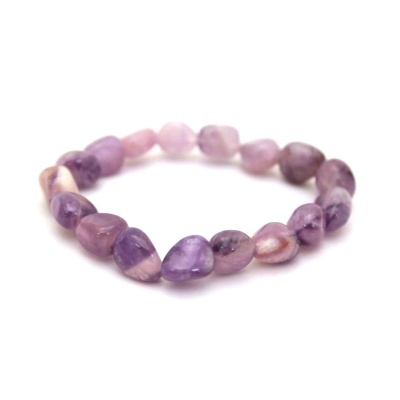
.jpg)
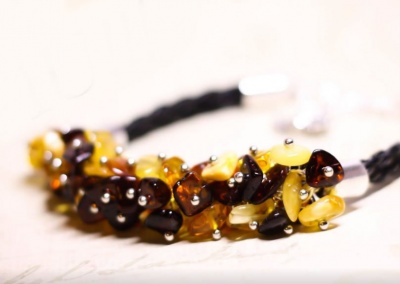
.jpg)
.jpg)
.jpg)
.jpg)
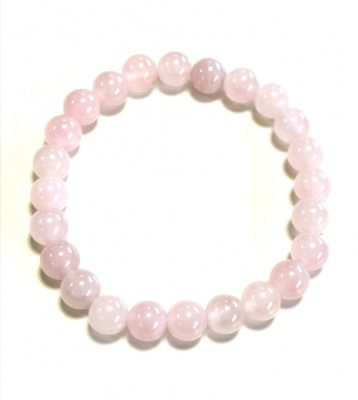
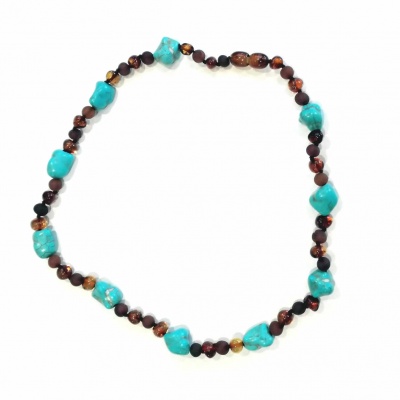
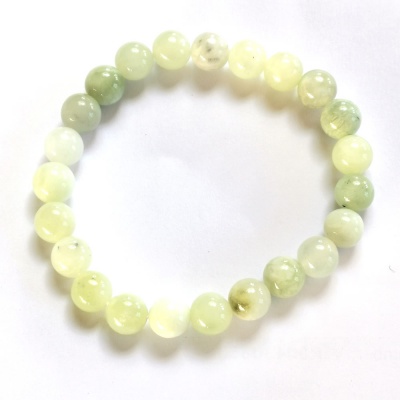
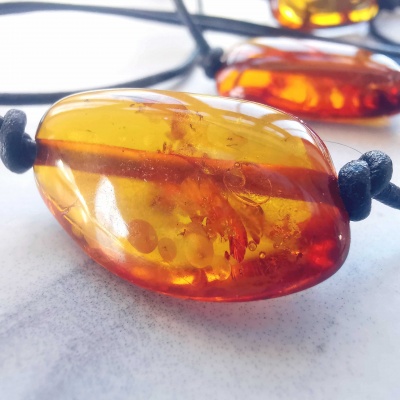
.jpg)
.jpg)
.jpg)
.jpg)
.jpg)